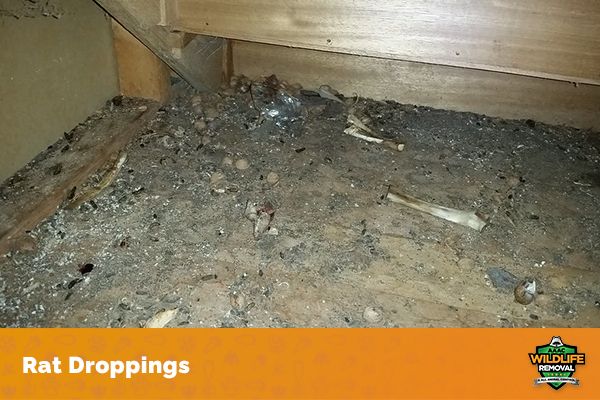Rats and mice may be small, but they can cause big problems. These furry pests are known to chew through wires, gnaw on wood and destroy insulation – not to mention contaminate food sources and spread disease. In short, rodents can wreak havoc in your home or business.
How much damage do rats and mice really cause? And what can you do to prevent these critters from wreaking havoc on your own property? Read on to learn more about the damage caused by rats and mice – and how to prevent these pests from causing costly damage to your home or business.
How Much Damage Do Rats Cause?
Rodents are responsible for an estimated 25% of all house fires in the United States. Not just that, but they cause billions of damage to homes, buildings, and businesses. Incredible, right? But it doesn’t stop there – they can also transmit diseases to humans, including Hantavirus, Salmonella, and Bubonic plague.
What Kinds of Damage Do They Cause?
Rodents are everywhere and they can enter your home or business in a number of ways. Once they’re in, they’ll start to cause all sorts of problems. These rodents are notorious for causing fires and floods, they gnaw on valuables, cause damage to structures, and pose health risks.
Let’s discuss each in a little more detail:
Fires and floods
Rodents chewing wires and pipes are common knowledge. Rodents love to chew on things, and wires and pipes are no exception. This chewing can cause shorts in electrical wiring, which can lead to fires.
Not just that, but they can also gnaw through water pipes, causing flooding. These furry pests have been known to cause billions of dollars in damage to homes, buildings, and businesses each year.
Wires and water pipes look hardly edible, but why do rodents nibble on them anyway? The answer is, that they’re trying to control their ever-growing incisors. When they gnaw on something hard, it helps to keep their teeth at a manageable length. Unfortunately for us, wires and pipes are an easy target.
Rats Gnawing On Valuables
When they’re not busy chewing on wires or pipes, they might munch on your clothes, car wires, books, or furniture.
The worst-case scenario is they destroy your most valuable items: your family heirlooms, photographs, artwork, and even important documents. We usually keep these items in an area where people and kids don’t frequent because they might get accidentally rearranged or damaged. But, rodents can squeeze into the smallest of spaces and once they’re in, they’ll start to destroy your property.
Often, these valuables are irreplaceable, especially family photographs. Once they’re damaged, there’s no way to fix them.

Rats Can Make Your Home Structurally Unsound
Not only will rodents damage your belongings, but they can also damage the structure of your home. Their constant gnawing can weaken beams, supports, and load-bearing walls. This is especially dangerous if you have a multi-story home because the weight of the upper floors could come crashing down on the lower floors.
In extreme cases, the damage caused by rodents can make your home structurally unsound and unsafe to live in. You might not notice the damage immediately, but over time, the cumulative damage they’ve done will make your home unstable or unsafe.

Rodents eat car wires too!
Rodents chewing car wires is not news especially when you’re parking indoors. They will also build their nests in your car’s engine, which can cause serious damage. You might not have guessed it, but your car is an all-you-can-eat buffet for rats and mice. They love to nibble on the insulation around the wires in your car’s engine. This can cause electrical problems and even fires.
Making sure there’s nothing in your vehicle that could attract rodents is one way to prevent them from damaging your car. Food wrappers, crumbs, and even pet food can all attract rodents. If you park your car in a garage or storage unit, be sure to keep it clean and free of clutter.
When this happens, you’re probably wondering whether your insurance covers rodent damage. The best answer is to check your car insurance policy and insurance provider. Not all auto insurance policies cover damage from chewed car wires.

Health Risks
Rats and mice are known to spread more than 35 diseases worldwide. The diseases may be transmitted and spread through direct contact with rodent feces, urine, saliva, or bites.
The most common diseases transmitted by rodents are hantavirus, leptospirosis, lymphocytic choriomeningitis (LCMV), and Salmonella. These diseases can be life-threatening. If you think you’ve been exposed to any of these diseases, seek medical help immediately.

Rodents Can Attract Other Wildlife Including Snakes! Yikes!
Rodents are one of snakes’ favorite foods and they can smell a rat or mouse from a long way away. If you have rodents in your home, there’s a good chance that snakes will be attracted to your property.
While most snakes are not dangerous, there are some species that can pose a serious threat to humans. These include the eastern diamondback rattlesnake, the western diamondback rattlesnake, and the cottonmouth. If you live in an area where these snakes are common, it’s important to be extra cautious.
This situation should give you more reason to prevent rodents from infesting your house.
These predators are attracted to the same places where rodents are usually found- in dark, secluded areas. The spaces can be in your attic, crawl space, or under your house.
Crop Damage
Rodents are vermin, pests, or nuisance animals that spread diseases and destroy crops. If you’re a farmer, you know the devastation rodents can bring to your crops. They feast on your produce and ruin your hard work. They can destroy an entire crop in a single night! It means lost revenue for you and puts food security at risk. Not only do they eat the crops, but they also contaminate them with their waste. It can make the food unsafe for human consumption.

Signs of Rodent Infestation
The first sign of a rodent infestation is sightings themselves. If you see a rat or mouse in your home, there’s likely more from where they come. They usually travel in groups and reproduce quickly, so an infestation can happen in no time if not removed.
Another sign of an infestation is droppings. Rodent droppings are small, dark, and pellet-shaped. Typically found near where the rodents are nesting or feeding.
If you hear unexplained noises in your walls or ceiling then you probably have rodents. They like to gnaw on things, so you might hear them chewing on wood or insulation.
If you notice any of these signs, take action immediately. An infestation can quickly get out of control, so it’s best to nip it in the bud as soon as possible.

More About Rodents
Rodents are not just rats and mice. These gnawing mammals include gophers, voles, chipmunks, squirrels, etc. You often see squirrels in trees, gophers on sandy soil, voles on dense vegetation, and some crawling on power lines and roofs.
Most of them are known for burrowing under shrubs and bushes. They dug tunnels as means of escape and hideouts from predators. Additionally, rats are good swimmers!
Many gardeners hate rodents, as they damage vegetables, flowers, and newly planted seeds and dig plants up to their roots. These sneaky rodents give a fair share of eating bulbs, nuts, fruit, and even snails.

Prevention
The best way to deal with rodents is to prevent them from getting into your home in the first place. Here are quick tips:
- Seal up any cracks or holes in your foundation and walls. Rodents can squeeze through tiny spaces, so ensure there are no gaps they can get through.
- Secure food in airtight containers. Rodents are attracted to food, so they’re more likely to enter your home if there are accessible food sources.
- Keep your trash can lids closed. Trash cans are another source of food for rodents.
- Make sure to clean your cars regularly to prevent vehicle damage. Your engine compartment can be a good nesting site for rodents.
- Keep pet food sealed tightly. Their smell can attract rodents.
Following these tips will make you less likely to have a rodent problem. But it’s wiser to call a Rodent removal service if you are experiencing an infestation.
Need Help With a Rat Infestation On Your Property?
Dealing with a rat infestation can be pretty frustrating, especially when you have other things to do. It’s not always safe too, you’ll get exposed to rat droppings which are often a source of diseases.
So if you suspect that you have rats and mice at your house, it’s best to call us at AAAC Wildlife Removal immediately. We conduct inspections and effective removal services as well as preventive measures to keep the rodents from coming back.
Conclusion
Rats and mice are a serious problem. They may be small, but they’re terrible guests at your house. They cause damage to your property, pose a health risk to you and your family, and can even attract other wildlife animals. If you have a rodent problem, immediately take action to prevent further damage.
Just remember to call AAAC Wildlife Removal if you want to prevent and stop rodents from infesting your home.
Originally published at AAAC Wildlife Removal: https://aaacwildliferemoval.com/blog/rats/damage-caused-by-rats-and-mice/













